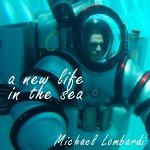 Losing the ability to breathe is just plain scary. Most of us have had the wind knocked out of us at one point in time – from an accident, a youthful fight with a sibling, or just had it scared out of you. Losing the ability to breathe triggers a number of physiological mechanisms to set in which often manifest themselves through anxiety or even panic. None of this is something we EVER want to experience underwater.
Losing the ability to breathe is just plain scary. Most of us have had the wind knocked out of us at one point in time – from an accident, a youthful fight with a sibling, or just had it scared out of you. Losing the ability to breathe triggers a number of physiological mechanisms to set in which often manifest themselves through anxiety or even panic. None of this is something we EVER want to experience underwater.
While underwater, our ability to breathe – this most fundamental of human needs – is challenged. We depend on an artificial supply of breathing gas. If this equipment fails, or if we fail to operate it properly, we can’t breathe. Generally speaking, gauges and proper dive planning avoid this scary situation. But for a niche group of working divers out there, ‘last breath’, not to be confused with ‘the last breath’, is a phrase from the vernacular of this unique breed.
One class of working divers out there are fisherman. They muck about in shallow but high flow areas that are suitable harvesting grounds for various types of shellfish. Often times, the water is shallow enough to stand up in should a problem arise, but the advantages of scuba allow the fisherman to cover large areas of shell fishing grounds seeking out ideal habitat and large populations. No kidding here, these guys will dive until ‘last breath’. No pressure gauges, no bailout or other reserve…when the tank gets low and hard to breath from, they know they are within 5 minutes of consuming all of the cylinder’s gas supply, and the dive is terminated.
Most of us will return to the surface with 500psi in a cylinder after a recreational type of dive. This is standard industry practice. But for the working diver, this 500psi of remaining air means an opportunity lost to increase their catch. ‘Last breath’ is necessarily irresponsible, its embedded in this diving subculture as the means to work effectively in this environment.
So, where is all this going? Well, I’m not advocating diving to ‘last breath’ by any means – especially for the masses. But I can tell you that I’ve learned a considerable amount of very practical information from this population of diving fisherman. Their practices may be unconventional, but they fit their requirements, can be justified with generations worth of safe working dives. Further, their perspective on and relationship with the marine environment is one that we would all benefit from at some level.
There are people out there, working hard every single day on and under the water. This is far from a white collar community, but these guys are making it happen in an alien environment, which just so happens to be the vast majority of our planet. Their life lessons and the experiences brought back to land lovers are guaranteed to take your breath away.
I challenge all of you to dive in and take a closer look…


 ShareThis var shared_object = SHARETHIS.addEntry({ title: document.title, url: document.location.href});shared_object.attachButton(document.getElementById(“ck_sharethis”));shared_object.attachChicklet(“email”, document.getElementById(“ck_email”));shared_object.attachChicklet(“facebook”, document.getElementById(“ck_facebook”));shared_object.attachChicklet(“twitter”, document.getElementById(“ck_twitter”));Related articles by Zemanta
ShareThis var shared_object = SHARETHIS.addEntry({ title: document.title, url: document.location.href});shared_object.attachButton(document.getElementById(“ck_sharethis”));shared_object.attachChicklet(“email”, document.getElementById(“ck_email”));shared_object.attachChicklet(“facebook”, document.getElementById(“ck_facebook”));shared_object.attachChicklet(“twitter”, document.getElementById(“ck_twitter”));Related articles by Zemanta
- Buddy Breathing Procedure is an Important Skill for Scuba Divers (scuba-diving.suite101.com)
- Scuba Diver Running Out of Air and Needing a Back-Up Air Supply (scuba-diving.suite101.com)
- Hyperventilate to Hold Your Breath Longer [Body Hacks] (lifehacker.com)
- aquatic atrophy (anewlifeinthesea.blogspot.com)


![Reblog this post [with Zemanta]](https://img.zemanta.com/reblog_e.png?x-id=c052c279-c627-4dc4-a986-f535199fb5dc)